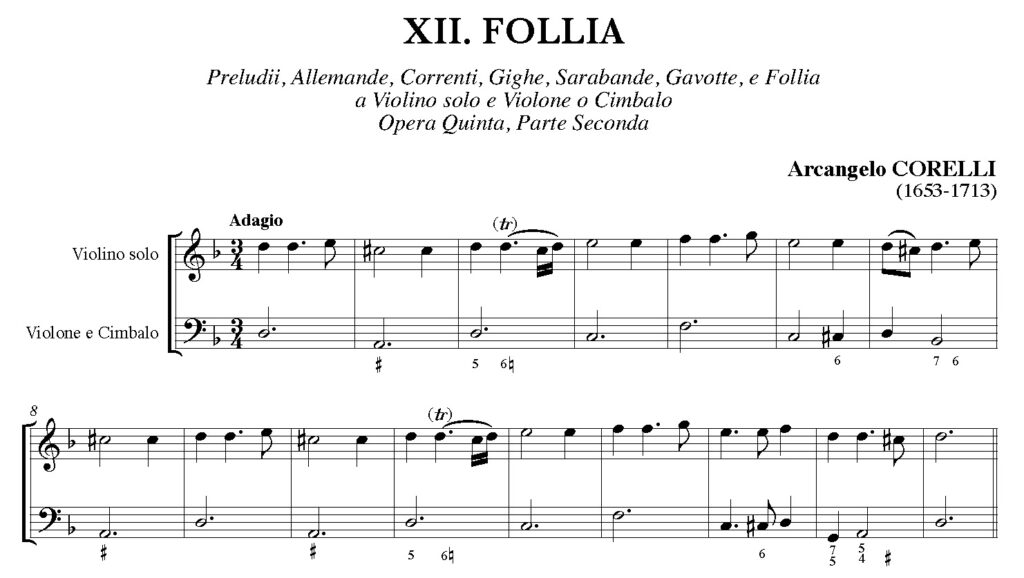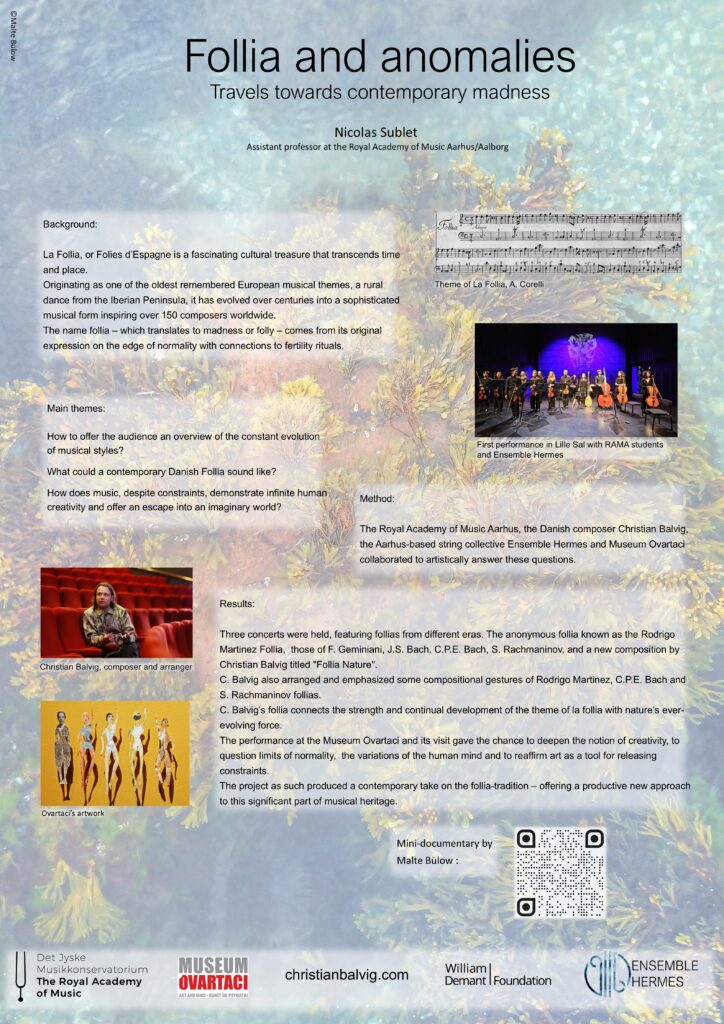Folias and anomalies
- travels toward contemporary madness
 by assistant professor Nicolas Sublet
by assistant professor Nicolas Sublet

This chord progression forms the theme of “La Follia,” with over 150 composers expressing their creativity through many variations. Originally, “La Follia” was a traditional Iberian country dance rooted in a 15th-century Portuguese text by Gil Vicente. This dance, linked to fertility rituals, featured male dancers carrying men dressed as women, likely contributing to its name, meaning “madness.”
This musical anomaly raises intriguing questions. Isn’t it surprising that such a modest chord sequence has inspired numerous composers, each bringing a unique perspective? Can their compositions be seen as reflections of the questions and concerns of their respective times? In our era, surrounded by madness, what does a contemporary Danish Follia sound like? Can its outdoor origin and the Latin root of “follia” (leaves) resonate with strings and percussion in the context of ecological questions and human madness?
In the project “Follia and Anomalies – Travel Toward Contemporary Madness,” I, along with five RAMA students, the Danish composer Christian Balvig, and Ensemble Hermes, explore facets of this renowned theme. We interweave follias by Rodrigo Martinez, Francesco Geminiani, J.S. Bach, C.P.E. Bach, and Sergei Rachmaninov into a one-hour flow. This includes newly composed transitions and a new Follia for strings, guitar, and percussion by Christian Balvig. The old follias undergo crucial rearrangements to articulate their artistic nuances, aiming to understand their place in societal and musical history and uncover elements resonating with our time’s sensibilities. Key concepts may include madness and psychological vulnerability. We will collaborate with the Ovartaci Museum to deepen this exploration.
Concerts:
* 23/02, 2024, 19.30, Lille Sal, Musikhuset Aarhus
* 25/02, 2024, 15.00, Ovartaci Museum, Aarhus
* 03/03, 2024, 13.30, Koldinghus
Watch this video in which Nicolas elaborates on the project.
See Nicolas’ poster from Rama Research 2024

